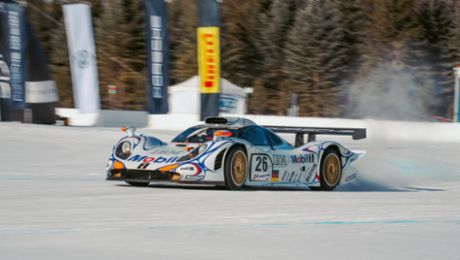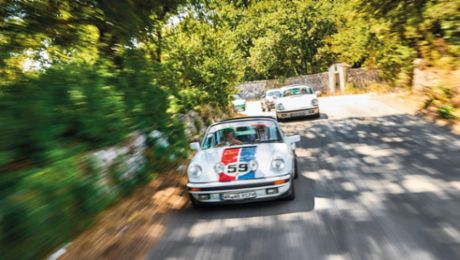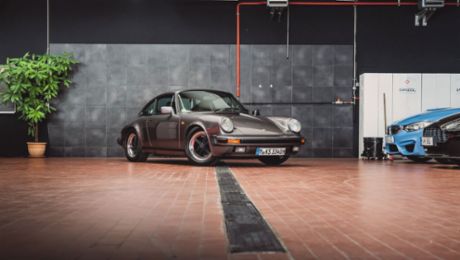All over the world, even in some of the remotest regions, you can stumble upon extraordinary driving roads. These havens of automotive passion serve as bucket-list items for road-trip fanatics, who tick them off one-by-one as they satiate their need for driving thrills and spectacular scenery, ‘collecting’ these ribbons of tarmac like a scout working through their badges. There’s no shortage of great driving roads. Take the Angeles Crest Highway just outside LA, the Schwarzwaldhochstraße in Germany, the N9 from central to southern Morocco, or any number of routes through the North York Moors in the UK – all of these could sit in that esteemed category of great driving routes.
But lying beyond the great is the elite. Roads vying for the superlative title of ‘best in the world’. For some, the Transfăgărășan Highway is the uncontested champion, the ultimate driving road. As serendipity would have it, 2024 marks 50 years since this iconic mountain pass first opened. What better place, then, to celebrate 50 years of Porsche Turbo – with a media drive featuring some of the earliest and most recent models to bear the iconic Turbo badge.
At 91 kilometres long, the Transfăgărășan Highway, nicknamed ‘The Great Dragon’, sweeps through the southern Carpathian Mountains, originally built to provide a strategic route between Transylvania and Muntenia. Its construction, between 1970 and 1974, famously used more than 6,000 tonnes of dynamite – and, infamously, claimed the lives of at least 40 people. Producing the optimal camber, elevation changes and corner radii for spirited drives in cutting-edge sports cars certainly wasn’t high on the agenda as the route was being carved through the mountains, but the final form of the highway – having been dictated by the brutal natural landscape – is so exceptional that it would scarcely be possible to build a better driving road if you tried.
During the winter months (and sometimes beyond), the road can be a perilous place, affected by snow and with the ever-present risk of avalanche. But, when the snow gates open and the warmer weather sets in it is a verdant world of driving wonder. So, in a fitting tribute to the Transfăgărășan Highway’s 50th anniversary, from 4–11 September Porsche Central Eastern Europe welcomed 60 journalists from 16 countries to take part in an over 300-km drive celebrating 50 years of Turbo.
The media guests had the opportunity to drive current and modern-era Turbo models, such as the Panamera Turbo E-Hybrid, the Cayenne Turbo E-Hybrid with GT- Package, and the 992-generation 911 Turbo S. The Porsche Museum also temporarily let loose some of its classic Turbo icons, including a 930-generation 911 Turbo 3.3, a 964-generation 911 Turbo 3.6, and – last of the air-cooled era – a 993-generation 911 Turbo S.
House of Turbo
The hub of the event was Hotel Castelnor, which, for 10 days, became the ‘House of Turbo’. A special static display featuring the stunning 991 Turbo S Exclusive Series and an extensive array of Porsche Museum exhibits transformed this charming Transylvanian property into an exclusive and immersive Porsche Turbo experience. Throughout the public areas and media rooms, the exhibits enabled guests to take a self-guided tour through the illustrious history of Turbo – featuring pieces such as a cutaway model of the first twin-charged Porsche engine (from the 997-generation 911), various model-specific components illustrating the ‘technological pioneer’ status of Turbo models, and other Turbo memorabilia. Carefully crafted artworks, décor and digital media were fully integrated into the venue styling, creating an uninterrupted atmosphere conveying the full story and ethos of Turbo at Porsche.
“We were amazed by the warm hospitality of the people and the rich history of the country,” says Venceslas Monzini, Head of Public Relations Porsche Central and Eastern Europe.
A unique driving experience
With an opportunity to drive an array of such special and iconic cars on arguably the best route in the world, the trip was a true once-in-a-lifetime adventure for the journalists and Porsche staff who attended. “It was amazing to gather some of the top journalists from Central and Eastern Europe – and further afield – and to offer them this unique driving opportunity,” says Monzini. “To see these cars – some of which can normally only be found in the Porsche Museum – out in the world in such an iconic place was such a special experience.”
A team of Porsche instructors was on site to guide the media through their journey and to assist in getting the best out of the cars. The more than 300-km route, including over 160 corners, over 833 small bridges, through five tunnels – and past 15 brown bears – gave the journalists a chance to experience the distinctive characteristics and features that make the Turbo models stand out and represent the pinnacle of their respective model lines: from the outstanding chassis dynamics, yielding even greater performance while simultaneously providing an engaging driving experience with quintessential Porsche ‘feel’ and feedback, to the astonishing (and somewhat addictive) power and torque from the turbocharged power units.
It would be hard to argue the claims that the Transfăgărășan Highway is the world’s greatest driving road. Certainly, when driven with Zuffenhausen’s offering of Turbo models, it’s hard to disagree. Just watch out for bears …



